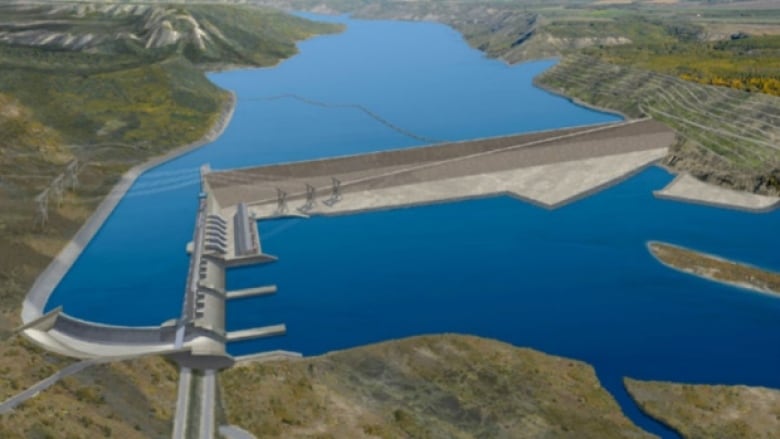Are dams and LNG shutting out biofuels in B.C.?
Advocates warn the Site C dam could drive away innovation in B.C.'s energy sector

UBC researcher Jack Saddler marvels at how wood waste can actually make people fly.
He's currently part of a project to convert forest residues into jet fuel — a process he believes could redefine air transport in a low-carbon future.
"The only alternative green up aviation is 'biojet'," he said. "You're not going to electrify [airplanes], you're not going to go nuclear."
'Biojet' is just one of many potential biofuels that B.C. researchers in the bioenergy sector are exploring. But some clean energy advocates worry that bioenergy — or renewable energy produced by living organisms — might be losing steam in the province thanks to big energy projects like the Site C dam, which advocates warn could ultimately drive out innovation in the industry.
A bioenergy strategy
B.C. has long valued bioenergy as a fuel source that could be an alternative to traditional forms of energy.
In 2008, B.C. Premier Gordon Campbell released a bioenergy strategy that outlined how the province could utilize organic waste, wood residue, and agricultural fibre as carbon-neutral energy source.
"Bioenergy is absolutely critical to achieving B.C.'s climate goals and economic objectives," the report read.

The strategy included a $25 million investment in a B.C. Bioenergy Network to build renewable energy projects throughout the province. While the network continues to operate off funding set up by the Campbell government, some wonder if the current premier Christy Clark is as committed to expanding B.C.'s bioenergy sector nearly ten years later.
"They're cautious," said Paul Kariya, executive director of Clean Energy B.C., adding that the provinces power demands are pretty much covered by big energy projects. "They're going to do Site C, and they're in [a power] surplus — meaning they don't need anymore power."
Kariya represents a collective of renewable energy producers, many of them in the bioenergy field. While some the producers have contracts to supply BC Hydro with power, he says the opportunities are limited.
"Whether its wind, hydro, solar, or bioenergy — [they] just don't need it right now, and so they're not that encouraging."
Losing innovation
BC Hydro currently has electricity purchase agreements with 24 bioenergy projects, according to B.C. Energy Minister Bill Bennett.
"B.C. has the greatest amount of biomass renewable energy capacity in Canada," he said in a written statement to CBC.
But the minister says that although the province will explore opportunities for different forms of clean energy, there's currently no large open calls for power.

With B.C.'s needs satisfied by hydro and natural gas, Kariya worries that the province is driving away innovation in the renewable energy sector.
"We're in danger of losing private sector innovation ... across all fuel types if we're not careful. I think that's our fear— companies looking to invest elsewhere because there isn't an opportunity in the near term right now."
And one place where those innovators may look to invest is right next door.
Doors open in Alberta
The Alberta government recently announced a $60 million investment in the province's bioenergy industry to help diversify its energy sector. The dollars come from the province's newly-implemented carbon tax, and will be distributed to producers to drive technologies forward.
While Kariya admits that Alberta's energy needs are quite different than B.C.'s (the province has far less hydro capacity), he says there's a key theme that could be adopted: diversification.

"We're trying to work with government and convince them that they need a more diversified approach, a longer term vision ... rather than relying on one big project, or demand centre."
However, he calls the current state of play "very awkward" regarding B.C.'s independent clean energy producers.
"We only have one buyer," he said. "[And that's] BC Hydro."
"And they're also our biggest competitor."

